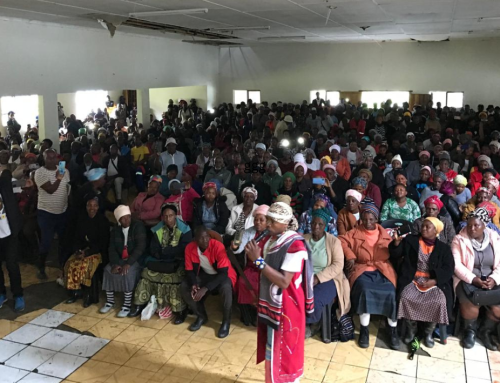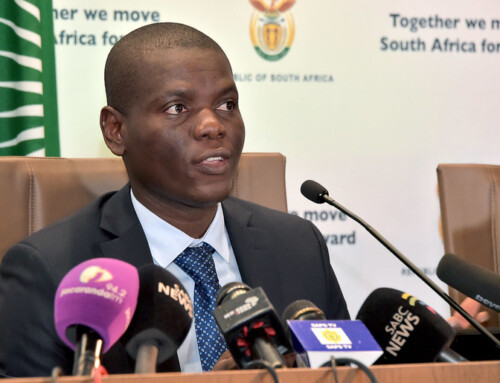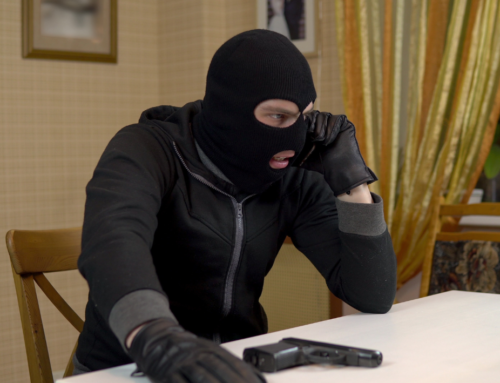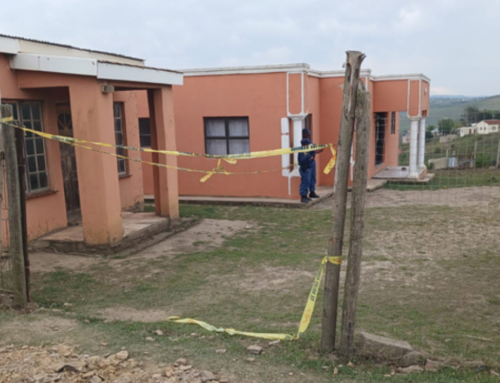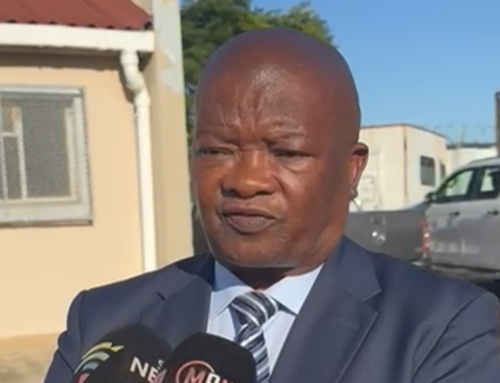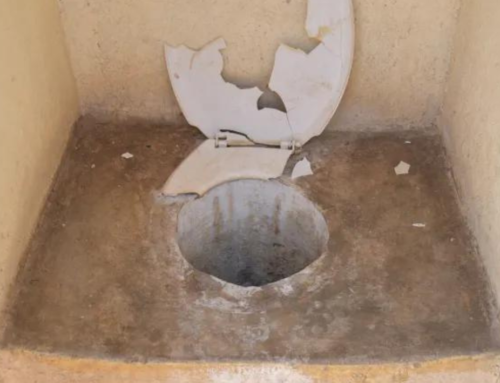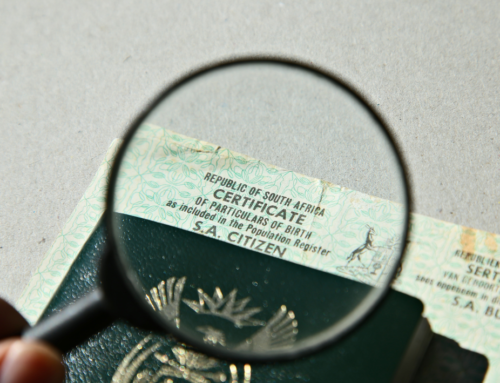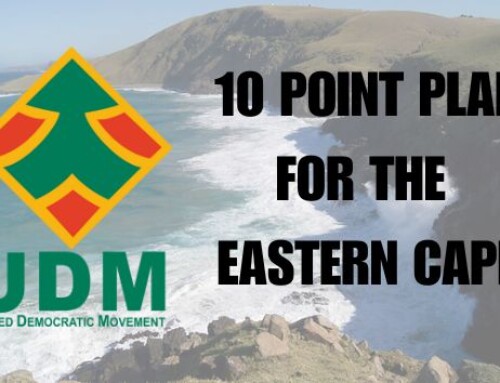 Mr MC Ramaphosa
Mr MC Ramaphosa
President of the Republic of South Africa
Private Bag X1000
Pretoria
0001
and
Mr LO Mabuyane
Premier of the Eastern Cape
Private Bag X0047
Bhisho
5605
and
Kings of the Eastern Cape
Dear Mr President, Mr Mabuyane and Your Majesties
Development of the Eastern Cape: call for an indaba/imbizo
1. The concerns I raise below were shared with me at Nkosi Mzolisi Diliza’s thanks-giving ceremony, in December 2022, who is also a businessman, where many prominent Eastern Cape citizens were present, including Professor Nkuhlu, Advocate Lusu, Nkosi Phathekile Holomisa, Deputy Minister of Correctional Services, businessman Sabelo Macingwane and many others. We informally chatted about the deterioration of the Eastern Cape, especially in the villages and rural towns where infrastructure is collapsing, and there seems to be no coordinated programme of service delivery. To compound matters, it is the meagre infrastructure that exist that people take out their frustrations upon, and destroy, when they are protesting.
2. We also informally discussed these concerns at the launch of the Dan Pasiya Foundation in East London earlier this year where the Eastern Cape provincial secretary of the African National Congress (ANC) Lulama Ngcukayitobi, and others, were present.
3. Of late young professionals hailing from the Eastern Cape, who work in big cities and within the province, have been knocking at my door every day with their concerns and echo each other’s pleas that something must be done, including the late struggle stalwart and lawyer Prince Madikizela’s daughter, Ms Zolisa Madikizela, who even said that her father died an unhappy man because he continued to question the neglect the Eastern Cape had been experiencing, considering the role it played in the struggle.
4. The current emerging consensus is that the infrastructure of the past, especially in the homelands that were run by Paramount Chief KD Matanzima and Dr LL Sebe, is on the brink of collapse and the projects that once sustained flourishing economies are now defunct. People who have left their Eastern Cape homes in search for jobs in the big cities have met with the harsh realities of life and live in shacks in the townships.
5. Yes, the incumbent government have made strides in the right direction, but there is so much work still to be done. It is the traditional, faith-based, civil society, business and other leaders that I have been in contact with, who believe that there is a need for an indaba/imbizo to take place and that when discussing the problems besetting the Eastern Cape it must be depoliticised. The involvement of all sectors of society, including all political parties, must be secured in finding solutions. At the launch of the Dan Pasiya Foundation, Mr Sturu Pasiya, went as far as offering that such an Eastern Cape indaba/imbizo could be hosted for free at Dan Pasiya’s Country Lodge in Mthatha.
6. The 1970s, in the then Ciskei and Transkei, marked the establishment of projects of agricultural schemes, the University of Transkei (Unitra) (now the Walter Sisulu University), the Transkei Development Corporation (TDC), the KD Matanzima Airport (now the Mthatha Airport), the Transkei Corporation (TRACO) solely established to help with food security, , the Ciskei Development Corporation (CDC) the establishments of teacher and nurses training colleges, as well as the creation of the Lubisi, Ncora and Mthatha Dams as part of irrigation schemes.
7. International partnerships were established to train employees who would train communities to develop land for farming for the benefit of all communities to be able to plough arable land. For example, Taiwan helped to establish factories in Butterworth, Mthatha, Ezibeleni (near Queenstown) and Dimbaza, to export resources like blankets, plates and cutlery; Austria supplied tractors that would assist communities; and the Magwa Tea Plantation (Lusikisiki) and the Majola Tea factories (Port St. Johns) were developed for tea export. It is a pity that the Taiwanese incentives were discarded, by the new dispensation, and those industries were closed, dislodging thousands of people and jobs. The narrative that was sold at the time was that mainland China would replace those industries since South Africa now had ties with them; we have yet to see the resuscitation of those industries – what would be wrong in having ties with both territories with a view to revive the erstwhile border industries to generate rural jobs?
8. Potential business owners who used to apply for funding at the CDC and the TDC have been struggling to get loans since these entities have been absorbed by the Eastern Cape Development Corporation (ECDC). Anecdotal evidence shows that the ownership of many spaza shops is dominated by foreign nationals e.g. Pakistani nationals and this frustrates enterprising South Africans who feel excluded from this competitive market due to this fierce international competition. Entrepreneurship has taken a knock in a big way in the Eastern Cape. Small, Micro, and Medium Enterprises (SMMEs) declare that they struggle to get tenders within the province and that tenders are awarded to outside service providers who do not employ a local workforce. Many wonder whether freedom in South Africa meant economic emancipation for a selected few.
9. Since its heyday certain regions of the Eastern Cape have been languishing. The Umzimvubu Water Project has been in the works for decades and it has been nothing but stop-and-start and empty government promises since the beginning.
10. Kings, Amakosi and Indunas/Headmen also feel frustrated with their statuses, packages and vehicles, as compared to those in other provinces. The Xhosa, Pondo and Thembu kings, for instance, would feel that there must be some equality between the royals, as opposed to one king in South Africa having a budget of millions of Rands. There is also a perennial complaint that traditional leaders are only remembered during elections, and they feel they are forgotten the rest of the time. In some areas they complain that councillors ignore them in development projects. Traditional leaders are calling for the return of the old system where the people, for example, had jobs to maintain local roads and build bridges (onontente/onolongo), established community forests, and women would also deal with soil erosion. The tender system works intermittently and interfered with a system that continually provided maintenance and jobs.
11. Waste management is non-existent and older water pipes appear to be defunct – especially those that were erected in the days of the Mandela-government under Ministers Kader Asmal and Ronnie Kasrils. Water projects have run dry and the machines that are supposed to pump water are no longer maintained. As one approaches Duncan Village, in East London, a massive stench emanates from this township and people are living like sardines in this informal settlement.
12. The taxi industry, which have assumed the role of public transport, has also raised their complaints on the state of our roads in the Eastern Cape and the impact it has on their vehicles and the safety of their passengers. Teachers, in particular, who regularly commute by taxi in rural areas are most heavily affected by this set of circumstances.
13. Indeed, the people of this region are frustrated with the many promises of mega projects, such as in 2005 when then Minister of Environmental Affairs Marthinus van Schalkwyk announced the creation of a Wild Coast Park, which we no longer hear anything about. In 2019 there was an announcement of a Pondoland Smart City – that was the last time we heard it mentioned. It has been almost ten years since the OR Tambo District Municipality has been ‘working’ on the water supply of the villages, up to Coffee Bay, of the King Sabata Dalindyebo Municipality, yet it has been plagued by corruption and has not been completed.
14. The other thing of concern is the ugly phenomenon of violent crime, political assassinations and drugs sold in broad daylight. According to some statistics, Mthatha police stations are where most murders were registered in the Eastern Cape last year. In the province itself, 1,200 murders were recorded between April and June 2022, up from 1,020 reported for the same period the previous year (a 17% increase).
15. The intermittent signal of the existing Internet Service Providers is affecting internet access in the Eastern Cape and schools, students and communities do not have easy access to what has almost become a human necessity. Broadband was rolled out in other provinces, especially in KwaZulu-Natal, during the administration of former President Jacob Zuma. The same should now be done in the Eastern Cape.
16. Dilapidated government buildings were also registered as a cause for concern, the ECDC buildings which used to be maintained by the TDC are falling apart. People are just occupying buildings. In other cases, people who had been renting spaces for years have been told to leave without being given the first opportunity to buy these residential properties.
17. All the main arteries (R61 and N2) leading into Mthatha are clogged, and our essential workers, teachers, commuters, hospital goers, and such are struggling to traverse these roads due to the congestion after the growth the city has experienced over the past decades. Nothing has been done to upgrade the infrastructure to cope with this growth.
The road to Coffee Bay, which links to international tourist destination, Hole in the Wall, was assessed by former Minister of Transport Fikile Mbalula and Sanral and they promised that it would be fixed with effect from September 2022. That road is now worse than ever before; it is almost better to go back to gravel roads than to face the enormous potholes on that road, which are treacherous and damaging to vehicles.
18. Furthermore, the question of the prices of SA Airlink tickets to Mthatha Airport must also be placed under discussion as their monopoly has made tickets unaffordable and affects not only local tourism, but local business, directly.
19. This region seems to be punished twice, first it was penalised in the apartheid years, because it was believed to have produced revolutionaries and was therefore denied resources and now, it lags behind in infrastructure development and is not on par with the rest of the country.
20. The concerned Eastern Capetonians I have been talking to are in full agreement with the approach we discussed i.e. let there be an indaba/imbizo, preferably as soon as possible, of those who have an interest in developing the Eastern Cape.
21. There are many experts and professionals who hail from this region, who are willing to give of their time and expertise to come up with a plan, which can be drafted to resuscitate the Eastern Cape.
22. We, therefore, in consultation with the rest of the people I have been in discussion with, suggest that this indaba/imbizo takes place and that those interested in finding solutions, who wish to attend, come forward from all sectors of society.
23. There was a feeling that the President should be invited to open this indaba/imbizo and the Premier of the Province should be invited to participate, and that both should bring along ministries/government officials that would be able to address some of the frustrations addressed above. In addition, that the Kings of the Eastern Cape, faith-based leaders, business, labour and other stakeholder also be represented.
24. Honourable Mr President and Honourable Mr Premier, this letter therefore serves as an invite to this indaba/imbizo, and we would request that you indicate your availability any date as from the second week in May 2023.
25. As a dedication to her father who played a pivotal role with the ANC in exile and the then Transkei Military Government to rebury King Sabata Dalindyebo in 1989 – an event which changed the political landscape in the Transkei – the person who will coordinate this event is Ms Z Madikizela (zolisam51@gmail.com). We envisage that this indaba/imbizo will have no attendance fee and will be free for all interested stakeholders to attend – provided that they arrange their attendance with Ms Madikizela.
26. We look forward to engaging with you in arranging this indaba/imbizo, as well as the establishment of a multi-stakeholder committee that will see that everything raised at the indaba/imbizo are addressed and that government is engaged, and the process is monitored – this must not just be another talk-shop.
Yours sincerely
Mr Bantu Holomisa, MP
President of the United Democratic Movement
Copied to: Nkosi P Holomisa, Deputy Minister of Correctional Services
Nkosi M Diliza
Advocate Lusu
Mr S Macingwane
Ms Z Madikizela
Mr L Ngcukayitobi
Professor Nkuhlu
All political parties represented in the Eastern Cape Legislature



